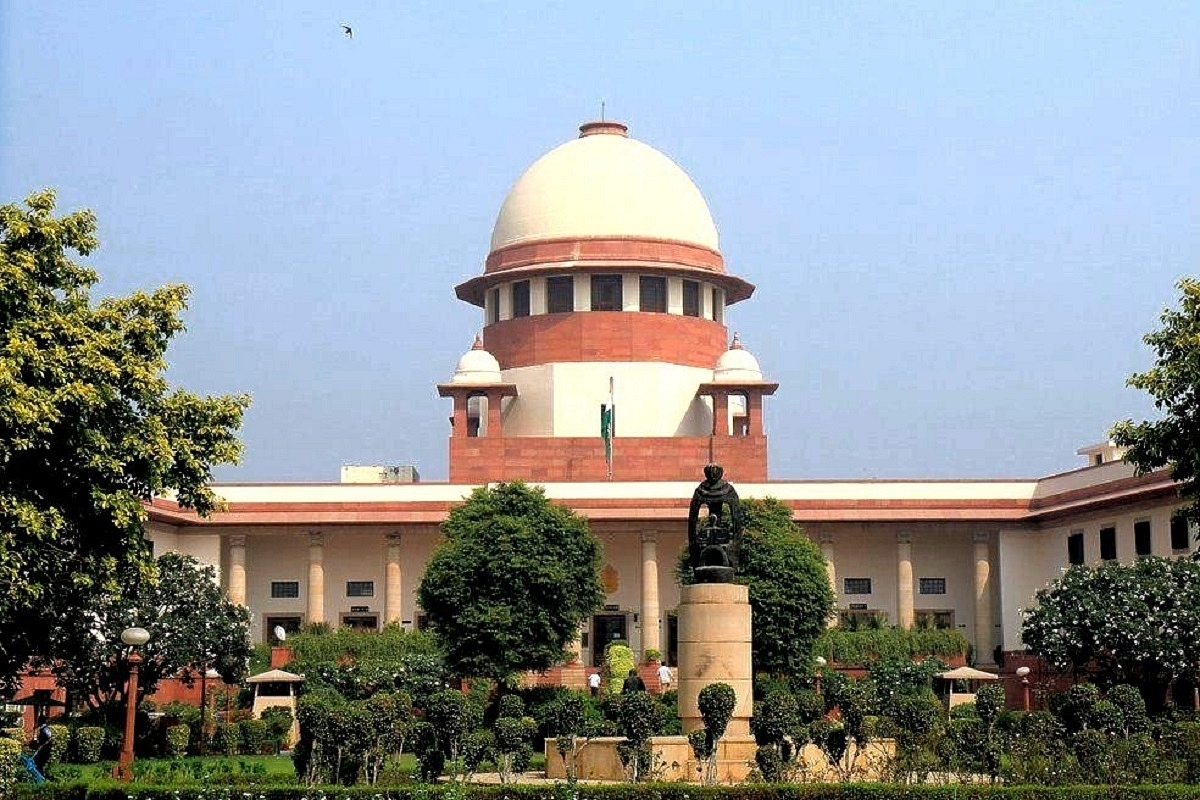Politics
How To Challenge SC Order Allowing Non-Hindus To Own Shops In Hindu Institutions
- While not discriminating against non-Hindu bidders for shops – as required by the court - Hindu institutions have every right to demand respect for their religion and institutions.

The Supreme Court of India. (@OnuorahMichael5/Twitter)
The Supreme Court, in an appalling show of one-sided secularism, asked Hindu institutions to allow non-Hindus to bid for shops on their premises. While this ruling should be legally challenged with a larger bench, in the short term, Hindus are not short of options.
Not discriminating against Christian and Muslim bidders for shops – as required by the court - Hindu institutions have every right to demand respect for their religion and institutions. That is non-negotiable.
The primary requirement of the Supreme Court order is that non-Hindus cannot be barred from bidding for shops only because of their religion. But this does not stop institutions set up under various Hindu Religious and Charitable Endowment Acts from insisting on a basic oath of allegiance to the institutions they run, including demanding respect for Hindu sentiments and norms.
Every bidder should be asked to provide a signed statement to the following effect.
“I, xxxxxx, follower of Islam (or Christianity), do hereby affirm that I respect all Hindu forms of worship, including murti puja, and shall refrain from carrying out my own religious duties and obligations on the premises of Hindu institutions. I shall not solicit conversions or distribute religious material to Hindus, or offer prayers to non-Hindu gods on these premises. For that I can visit my own designated religious places. I accept that my own religious rights begin outside the premises of Hindu institutions and not inside them.
I further guarantee that I will not offer namaz (or offer prayers to non-Hindu gods) inside these premises, and that I will use the shop only for selling goods and services. I affirm that all the goods sold by me conform to dharmic regulations and purity. None of the goods sold involve any slaughter of cows, and I shall not consume beef on these premises.
I also guarantee that any infringement of these affirmations by me shall amount to a breach of the contract under which I obtained rights to this shop (or premises), and could result in forfeiting my rights obtained through the auctions.
Further, as a gesture of goodwill and respect, I will refrain from referring to any Hindu with pejorative terms like kafir or devil-worshipper, not only within these premises but also outside, since these are offensive terms not only to Hindus but also go against the pluralistic spirit of the constitution.”
Some more terms can be added, but this should be the gist. Let those who want to challenge this oath in the Supreme Court do so. Hindus should fight them tooth and nail. It is time to show the courts that one-sided openness is a threat to the Hindu right to run their own sacred premises and institutions, as guaranteed under Article 26.
The question is whether governments run by non-Hindu or anti-Hindu regimes, from the DMK in Tamil Nadu to the Communists in Kerala to the YSR Congress in Andhra Pradesh (run by Christian Jagan Reddy) will have the gumption to really fight for the rights of the Hindu institutions they run.
If they do not do so, the case for a class action suit by Hindus in these states is called for.
It is time Hindus stopped taking such judicial diktats lying down.
Support Swarajya's 50 Ground Reports Project & Sponsor A Story
Every general election Swarajya does a 50 ground reports project.
Aimed only at serious readers and those who appreciate the nuances of political undercurrents, the project provides a sense of India's electoral landscape. As you know, these reports are produced after considerable investment of travel, time and effort on the ground.
This time too we've kicked off the project in style and have covered over 30 constituencies already. If you're someone who appreciates such work and have enjoyed our coverage please consider sponsoring a ground report for just Rs 2999 to Rs 19,999 - it goes a long way in helping us produce more quality reportage.
You can also back this project by becoming a subscriber for as little as Rs 999 - so do click on this links and choose a plan that suits you and back us.
Click below to contribute.
Latest